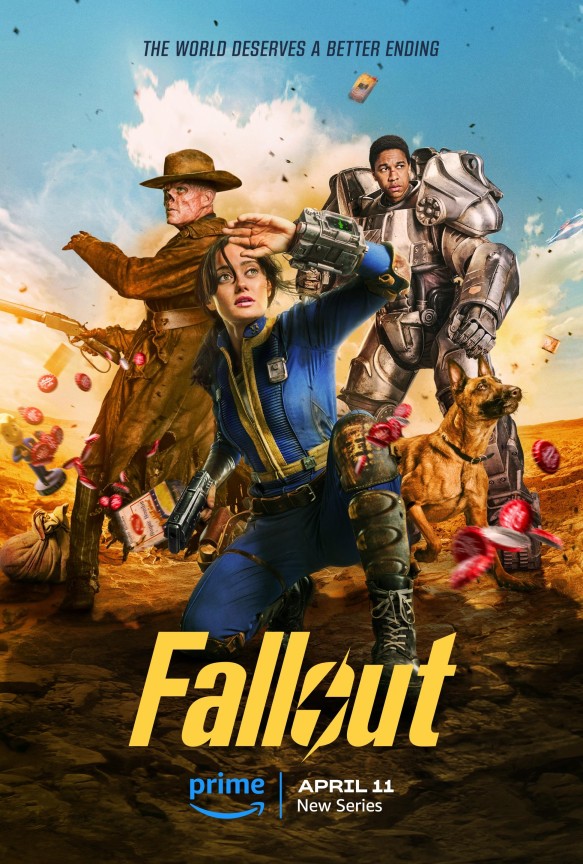First episode date: 10 April 2024 (USA) Based on: Fallout; by Bethesda Softworks Cinematography: Stuart Dryburgh; Teodoro Maniaci Composer: Ramin Djawadi Created by: Graham Wagner; Geneva Robertson-Dworet Genre: Action; Black comedy; Drama; Post-apocalyptic; Satire; Science fiction Western.
Fallout is a media franchise of post-apocalyptic role-playing video games—and later action role-playing games—created by Tim Cain and Leonard Boyarsky,[1][2] at Interplay Entertainment. The series is set during the 21st, 22nd, and 23rd centuries, and its atomicpunk retrofuturistic setting and art work are influenced by the post-war culture of 1950s United States, with its combination of hope for the promises of technology and the lurking fear of nuclear annihilation. A forerunner of Fallout is Wasteland, a 1988 game developed by Interplay Productions. Fallout is regarded as a spiritual successor to Wasteland.
The series’ first title, Fallout, was developed by Black Isle Studios and released in 1997, and its sequel, Fallout 2, the following year. With the tactical role-playing game Fallout Tactics: Brotherhood of Steel, development was handed to Micro Forté and 14 Degrees East. In 2004, Interplay closed Black Isle Studios,[3] and continued to produce Fallout: Brotherhood of Steel, an action game with role-playing elements for the PlayStation 2 and Xbox, without Black Isle Studios. Fallout 3, the third entry in the main series, was released in 2008 by Bethesda Softworks, and was followed by Fallout: New Vegas, developed by Obsidian Entertainment. Fallout 4 was released in 2015, and Fallout 76 released on November 14, 2018.
Bethesda Softworks owns the rights to the Fallout intellectual property.[4] After acquiring it, Bethesda licensed the rights to make a massively multiplayer online role-playing game (MMORPG) version of Fallout to Interplay. The MMORPG got as far as beta stage under Interplay,[5] but a prolonged legal battle between Bethesda Softworks and Interplay disrupted the development of the game, eventually resulting in its cancellation. Bethesda argued in court that Interplay had failed to fulfil the terms and conditions of the licensing contract. The case reached a resolution in early 2012.
